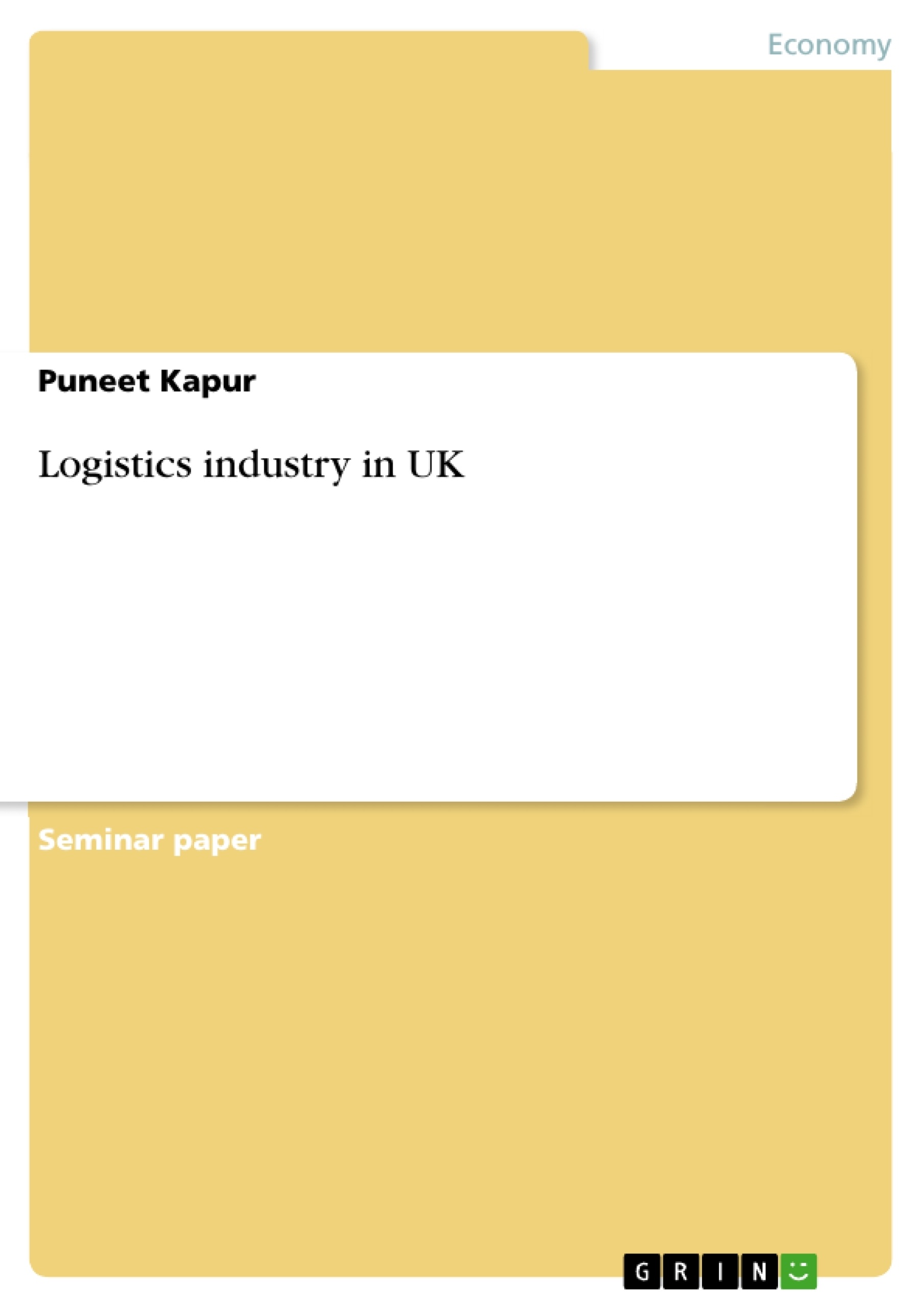Exel is a logistics company that provides supply chain services. Exel offers freight management, supply chain management and solution designs, technological solutions, warehousing and distribution services. The company has freight management and a contract logistics operation worldwide with its headquarter in Berkshire, UK. For the fiscal year ended December 2004, Exel generated revenues of £5,541.9 million, an increase of 9.3% from the previous fiscal year. Net income for the year was reported at £66.2 million, a decrease of 32% from the previous year. (Analyzed further)
Exel UK Operations
Exel in the United Kingdom is ideally positioned to provide the most efficient and effective supply chain solutions to its customers across key industries. With over 50 years experience in the UK market, Exel′s innovative supply chain solutions move beyond traditional logistics and transportation services.
Key facts about Exel in the United Kingdom:
51,700 employees
600 locations
7,700 vehicles
57.6 million sq ft warehouse capacity including dedicated and shared-user
As a founding member of the World Economic Forum′s Logistics and Transportation Corporate Citizenship Initiative (L&TCCI), Exel has been an active participant since its inception in January 2003. Exel is a supply chain management company for customers in a range of manufacturing and retail industries. Exel’s range of logistics solutions encompasses the complete supply chain management from design and consulting through to freight forwarding, warehousing and distribution services, integrated information management and eCommerce support. The company offers a variety of online services, including booking and ordering facilities, shipment tracking, and pricing indices. Exel provides services to the automotive, chemical, consumer, energy, healthcare, industrial, drinks, retail and technology sectors. It has divisions that deal with special products, value added services, IT solutions, global freight management and clinical trials logistics, among others. Exel also offers reverse logistics solutions including product removal, return for refurbishment, recycling, compliant and safe disposal of products.
...
Table of Contents
- UK & WORLD OPERATIONS
- Exel UK Operations
- Volume of Trade (graph)
- Exel Organization Structure
Objectives and Key Themes
This report aims to provide a comprehensive analysis of Exel Plc., a leading logistics company, and its competitive environment. The analysis focuses on Exel's UK operations, exploring its organizational structure, key products and services, and strategic positioning in the market.
- Exel's strategic positioning in the competitive environment
- Key products and services offered by Exel
- Analysis of Exel's organizational structure
- Competitive advantages and strategies employed by Exel
- Evaluation of Exel's market position and future prospects
Chapter Summaries
- UK & WORLD OPERATIONS: This chapter provides an overview of Exel Plc., outlining its global operations, core business activities, and financial performance. It highlights Exel's position as a leading provider of supply chain services, encompassing freight management, warehousing, and distribution.
- Exel UK Operations: This chapter focuses specifically on Exel's operations in the United Kingdom. It details key facts and figures about Exel's presence in the UK market, emphasizing its long-standing experience and commitment to innovation. The chapter also highlights Exel's involvement in corporate citizenship initiatives and its diverse customer base.
- Volume of Trade (graph): This chapter likely presents a graphical representation of Exel's volume of trade over a specific period, providing insights into the company's sales trends and market activity.
- Exel Organization Structure: This chapter delves into the organizational structure of Exel Plc. It likely provides a detailed description of the company's management hierarchy, key departments, and reporting relationships. The chapter may also analyze the strengths and weaknesses of this structure.
Keywords
This report focuses on key topics including logistics, supply chain management, competitive environment, organizational structure, strategic analysis, market segmentation, pricing strategy, and competitor analysis. It uses key terms such as freight management, warehousing, distribution, economies of scale, performance indicators, and competitive advantage.
- Quote paper
- Puneet Kapur (Author), 2005, Logistics industry in UK, Munich, GRIN Verlag, https://www.grin.com/document/51780




